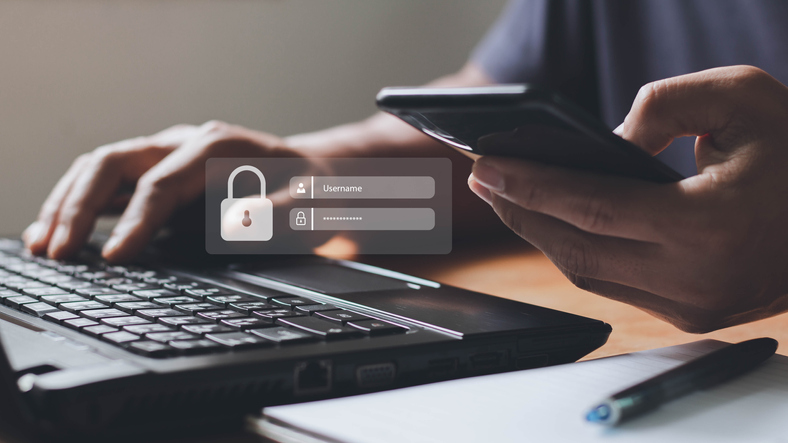So, online dating is a pretty popular thing nowadays. Millions of folks are swiping left and right, trying to find a special someone. But between you and me, meeting people on apps and websites can get sketchy if you aren’t careful. As someone who’s tried a couple different services myself, I know firsthand that you’ve really got to have your guard up and keep an eye out for red flags.
What Should Online Dating Services Do to Keep Their Users Safe?
That’s why I think these sites and apps need to take more responsibility to look out for people. There’s a few key things they ought to be doing—just basic, common sense stuff—that would make the whole online dating scene a lot safer. Because everyone deserves to find real relationships without worrying they’re being lied to or putting themselves in harm’s way.
Add More Security Checks
Number one thing on the list has gotta be verifying who people say they are. Too many shady characters out there pretending to be someone they aren’t to take advantage of folks. Services should be using technology tools more—stuff like requiring photo verification or background checks before profiles go live. That alone would cut down on so many fake accounts.
They also need better cybersecurity rules in general since they keep tons of private information. Encryption, multi-factor logins—services should use every trick in the book to lock down user data or hackers could expose everything about people. Can you imagine if your messages got leaked publicly? No thanks!
Explain Safety Tools Clearly
Now even with stronger identity checks and data protections behind the scenes, that isn’t enough if people don’t understand how to actually use those tools. The websites and apps have to educate everyone on safety basics or it’s pointless.
When you make a new profile, they should force you to complete a tutorial—maybe a video or something interactive—that explains different ways you could be targeted, what’s suspicious behavior to watch for, when and how to report issues. And they can’t just tell you once; they should use pop-ups and reminders across the sites to repeat the critical safety advice. That way it really sticks with people.

Promote Thoughtful, Respectful Conduct
There’s one more big piece beyond direct safety features. These platforms have to be deliberate about fostering the right community culture and expectations around behavior. When a site permits gross, shady stuff in profiles or conversations, it makes everyone think that kind of attitude is alright there. Services should moderate and remove anything promoting disrespect or dishonesty.
They can also show what’s acceptable by putting profiles through human review before new users interact openly. When folks know actual people approved the profiles they see, they’ll act better themselves. Plus strict harassment policies, banning crude messages—there’s many little ways for the sites to shape norms. If they’re intentional about creating an atmosphere of thoughtful conduct, it rubs off on the whole user base.
The bottom line in my view? Online dating sites hold the power to enable millions to meet partners safely if they cared enough to make it a priority. People deserve to put themselves out there without nasty surprises like catfishing or worse. By screening dodgy profiles, securing sensitive data, clearly explaining safety tools, and encouraging considerate behavior site-wide, these services could transform into trustworthy places for vulnerability, care and real relationships. But they’ve gotta take responsibility and act to get us there. What do you think—should we raise our expectations?
FAQs
What are some “red flags” to watch out for on dating profiles?
Some red flags include profiles with only one picture, inconsistent details in someone’s story, dodging requests to video chat, asking for financial assistance early on, excessive talk of “destiny” or “soulmates” very quickly into chatting, controlling or demanding behavior, weird anger when you ask simple questions to confirm who someone claims to be.
Also watch for poor grammar, overly generic or unlikely sounding profile details, answers that seem clearly copied from somewhere else—basically anything that makes you skeptical if this person is legit. Trust those gut feelings.
What information should I avoid sharing with online matches at first?
Avoid sharing personal contact info, social media accounts, family details, your home/work address, financial info, or anything else that creepy people could use to steal your identity or stalk you. Share the bare minimum details necessary at first until you can verify someone is truly who they claim to be over longer interactions.
Is location sharing safe when meeting online dates in person?
Location sharing with close friends or family during real-life dates, especially early on with online matches, is highly recommended. It allows your contacts to see where you are at all times, monitor if your location changes or stops moving unexpectedly in a way that might indicate danger. Location sharing doesn’t expose home/work addresses—it only uses mobile device GPS positioning.
What steps can I take to make sure I portray myself honestly online?
Use recent, unedited photos clearly showing your full appearance. Be truthful about your age, job, interests, values, what you seek in a relationship. Have video call chats before agreeing to meet offline to help confirm identities match claimed photos/details. Ask trusted friends to review your profile to catch any inaccuracies or misrepresentations. Honesty really is the best policy.
What should I do if an online match makes me uncomfortable or acts creepy?
If an online match seems dangerous in any way, don’t hesitate—report them through the app/site’s safety tools immediately. Notify customer support if their advances are inappropriate or predatory towards you or anyone else. Block any users at the very first sign of discomfort or disrespect instead of giving second chances—your personal safety comes first, always. Tell supportive friends/family about any worrisome interactions. Seek legal help if necessary. And remember to trust those gut instincts if someone seems “off”!